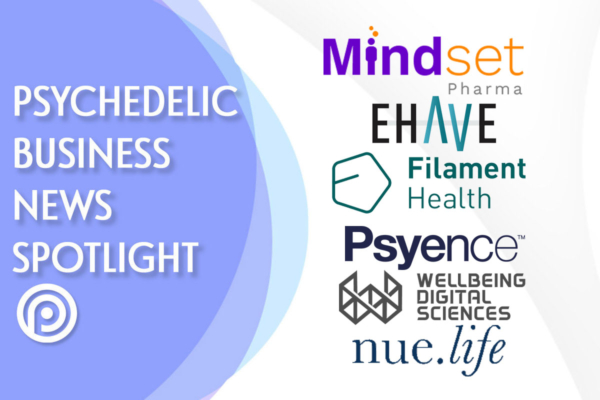
It seems that ketamine is having a moment. Originally discovered in 1962, the dissociative psychedelic has been used mainly as an anesthetic (pain killer) in the medical establishment for decades.
In recent years, however, its medical uses have ballooned, as evidence emerges that its potential benefits range from treating depression, to addiction, to ALS. Across North America, ketamine clinics have been sprouting like dandelions in spring, legally treating mental health conditions such as depression.
Now, evidence is growing that the psychedelic can also treat a debilitating aspect of Parkinson’s Disease.
Today, the company PharmaTher (OTCQB: PHRRF) (CSE: PHRM) announced topline results of their Phase 2 study using ketamine to treat Levodopa-Induced Dyskinesia (“LID”) in patients with Parkinson’s Disease.
Before getting to the results, let’s take a moment to understand LID. Basically, when a patient shows symptoms of Parkinson’s — a brain disorder that can cause uncontrollable shaking, and difficulty with walking, balance, and coordination — the most common treatment is a drug called Levodopa. And while this drug is effective in treating the symptoms, over time the side effects of Levodopa treatment start to mirror that of Parkinson’s itself. After five years of treatment, roughly half of patients will experience abnormal and uncontrollable bodily movements. Within 10 years, it will affect nearly everyone. This is LID, and it is currently basically untreatable.
Enter ketamine.
In the current study, PharmaTher had the goal of evaluating “the safety, tolerability and efficacy of low-dose ketamine infusion for the treatment of LID in patients with Parkinson’s Disease.” On all three counts, it appears to have exceeded expectations.
Starting with efficacy, PharmaTher says the study “demonstrated that 100% of patients treated with ketamine demonstrated a reduction in dyskinesias (LID)”. Now, while this is certainly impressive, it must be noted that PharmaTher’s early topline data did not specify by how much, on average, patients saw the dyskinesias symptoms decrease; only that they did. Full data is expected to be released in June.
On safety and tolerability, “the study demonstrated that ketamine was well tolerated with no serious adverse events reported. All adverse events were mild or moderate and reflected the expected side-effects of ketamine administration.”
So, despite not having the full data available, we can say that the results are very positive indeed. I am looking forward to writing about the full data in June.
Though the public doesn’t yet have the full data, PharmaTher is confident that it is positive enough to greenlight a Phase 3 trial this year. This trial will use PharmaTher’s proprietary ketamine intravenous product, KETARX™. As a reminder, a drug must pass through two Phase 3 trials before being approved to treat a condition. Though, as ketamine itself is already legal, doctors can prescribe it “off-label,” meaning that doctors, lacking other options, could likely already try this therapy.
Parkinson’s is a tragically large problem. More than 1 million people in the United States, and more than 7 million people world-wide, suffer from the disease. And while the drug Levodopa does certainly help them, the long-term consequences of taking it leave much to be desired. Hopefully, future studies continue to show ketamine’s effectiveness, and these 7 million plus individuals can get the help they deserve.
From a business perspective, the treatment market for LID is estimated to be more than $3 billion annually in the US alone. If PharmaTher can tap into this market, the company, currently with a tiny market cap of $15 million CAD, could see big days ahead. However, it must be noted that many companies produce and deliver ketamine, so even if PharmaTher proves its effectiveness in treating LID, it would face stiff competition.
Stepping back, this trial illustrates a BIG TREND in psychedelic medicines that Psychedelic Spotlight will be watching closely over the coming years: the transition of psychedelic medicines from treating solely mental health conditions, to treating physical health conditions. While we certainly do have a mental health crisis, battling traditional health issues is also important. Recent studies have shown that psychedelics may be useful in treating conditions as far ranging as eating disorders, to chronic pain, to strokes, and alzheimers.
At the end of the day, one of our goals as a species should be to lessen the pain and despair found on our planet. With each passing month, as more clinical data is released, it appears that psychedelic medicines such as ketamine, psilocybin, MDMA and LSD can help us achieve this lofty goal. We must put aside the stigmas of the past, and begin to view these molecules as medicines, rather than dangerous drugs that must be illegal.
Interested in becoming a licensed Psychedelic Therapist? Sign up for the Science of Psychedelics Course today! Taught by Dr. Erica Zelfand, this course is a definitive guide to entheogenic medicines, and offers an introduction to psychedelic assisted therapy and “trip sitting skills” to physicians, psychologists, social workers, mental health counselors, pharmacists and other empowered individuals. Sign up here, and use the discount code “PSYCspotlight” for 15% off, for a limited time only!





